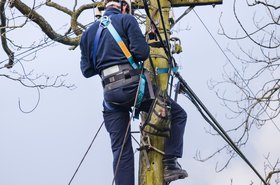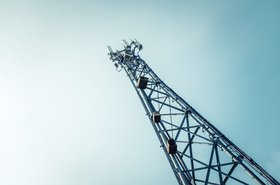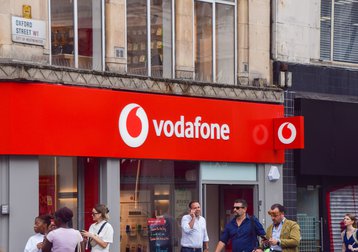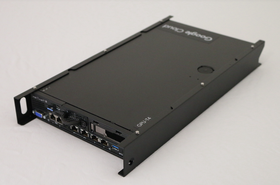Vodafone is on track with its rip and replace of Huawei equipment, but has acknowledged that the situation has slowed down its rollout of 5G services in the UK.
That is according to Vodafone UK chief network officer Andrea Dona.
The operator was forced to replace the 5G kit deployed by Huawei within its 5G network following the UK's ban on the vendor, which was imposed back in 2020. That year, Vodafone said it would cost around €200 million (then $220 million) to replace the equipment from its European networks.
Huawei has previously supported Vodafone on the RAN side of its network, not the core side.
The ban has meant Vodafone needed to remove all Huawei equipment from parts of its 5G network, as it was initially a partner in the rollout.
Dona told DCD that Vodafone's swap out of Huawei's equipment from its 5G network is going according to plan, revealing that Vodafone is using the opportunity to switch 2,500 Huawei sites to Open RAN.
He does, however, admit that the situation has severely slowed down Vodafone's 5G rollout in the UK, but will be completed by mid-2027.
"Although it's going to plan, it has slowed us down considerably on our 5G rollout, because we can't rollout out 5G with Huawei as we would have otherwise been able to do. We have to swap before we can roll out.
"If you've got an existing Huawei site, such as 2G, 3G, or 4G, and you want to put 5G there, you can't just do that as you have to rip this up and replace it, and is obviously much more costly, intrusive, and therefore slowed us down. So when I say Vodafone is on track, we're on track with the slowed down plan [removing Huawei kit]."
Elaborating further, he said that the removal of Huawei equipment has meant Vodafone had to start again from scratch with its 5G deployment, from designing sites and applying for planning permissions.
"Because the pot of money we have is very finite, we can't just use it to roll out 5G, I have to use part of it to replace before I can rollout 5G."
Dona notes that the government has been understanding of the disruption caused by the decision to ban the vendor for mobile operators, such as Vodafone.
"Every time you take a site down, it's off air, it's not radiating, and is super intrusive. It can take a few days as you're literally removing the engine of that site and replacing it."
BT began its own rip and replace of Huawei kit in May 2021, looking to replace 12,000 of the telco’s 18,000 mobile masts, rooftops, and other sites. The company had previously said removing Huawei from its networks will cost around £500 million ($700 million). Last year saw the company request and be granted an extension for its deadline to remove Huawei kits from its network.
Open RAN paves the way for 6G
Dona also spoke at length about the importance of Open RAN, stating that the technology will help prepare the world for what's to come with 6G.
Dona stated the importance of Open RAN in driving innovation and diversification within the telecom supply chain.
"Open RAN gives us a great opportunity to inject much-needed innovation and diversification in the telecom supply chain," said Dona, who explained that the technology is a giant step forward towards getting more out of 5G and beyond.
"With Open RAN you have different vendors providing different pieces, and with this, you can really focus on getting the best of these individual pieces, from the individual vendors, which can lead to improved resilience, competition, and cost."
He said that because Open RAN is providing the push to cloud-native, and can future-proof the company for the future.
"If it's zero-touch, it's a great vehicle to prepare for what could be one version of a 6G world, and we know 6G will not be a new technology, because we don't have a new radio access technology coming out of academia, of the university, so it will be based on the best that we've got so far, which is OFDM technology to access the spectrum.
"Generally it's a new radio access technology that defines a new technology, per se. So if you look at 6G, it is probably going to be a software-driven, intelligent, interoperable, open network that is hopefully overlaid to 5G, and is the catalyst for us to finally make some money out of 5G, as we're not making much money there."
Dona mentioned Vodafone's Open RAN activity in the UK so far, highlighting the deployments in Devon in February, and said that more deployments of this nature can be expected this year.
More in UK & Ireland
-

-

-
Discussion Networking break




